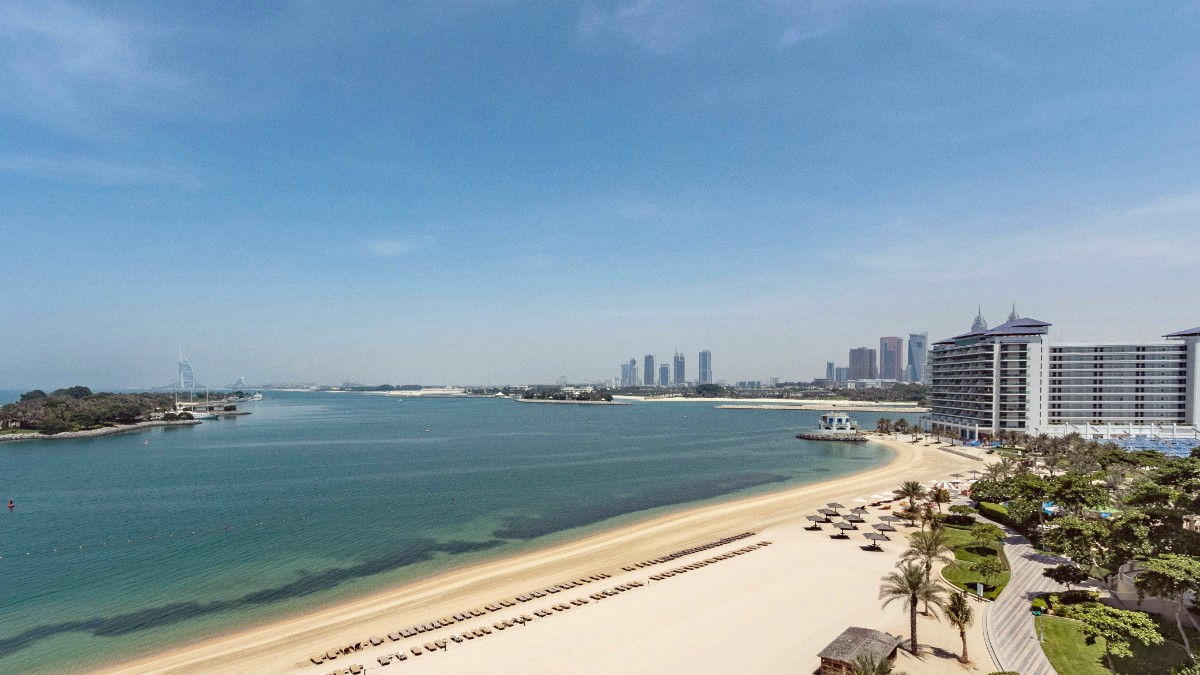
Dubai, UAE
While Palm Jumeirah predominantly features international and fine dining, understanding traditional Emirati cuisine deepens your visit. Emirati food stems from Bedouin and fishing traditions, influenced by centuries of trade with Persia, India, and the Middle East.
The cuisine uses rice, various meats (lamb, camel, goat), fish, and aromatic spices. Meals are a demonstration of hospitality and shared tradition.
When sampling traditional Emirati food, eating with your right hand is customary, notably during shared platters.
Public displays of affection are not suitable, especially in dining settings.
Dress modestly. Many fine dining establishments on Palm Jumeirah maintain smart casual or formal dress codes.
A simple yet deeply flavorful dish. It features slow-cooked wheat and meat (usually lamb or chicken), pounded to a porridge-like consistency, often seasoned with salt and ghee.
Find it in traditional Emirati restaurants, or sometimes in hotel buffets.
A traditional Yemeni dish widely popular in the UAE. It includes slow-cooked meat (lamb or chicken) with rice and a blend of aromatic spices, traditionally prepared in a tandoor-like oven (taboon).
You can find dedicated Mandi restaurants outside Palm Jumeirah, notably in Deira or Al Barsha.
Sweet, crispy-on-the-outside, soft-on-the-inside dumplings. These are drizzled with date syrup (dibbs) and sprinkled with sesame seeds.
A delightful dessert or snack, available in traditional cafes and sometimes at hotel buffets.
A staple of Emirati hospitality, often served with Arabic coffee. Dubai includes a vast selection of dates, from common varieties to gourmet, filled dates.
A Middle Eastern cheese pastry soaked in sweet, sugar-based syrup, often topped with pistachios. It is served warm and gooey.
Palm Jumeirah features many of Dubai’s most exclusive fine dining restaurants. Many are by celebrity chefs or received Michelin recognition.
Find a good selection of mid-range restaurants within Nakheel Mall, along the Palm Jumeirah Boardwalk, and at West Palm Beach.
Budget eateries and traditional street food are not prevalent on Palm Jumeirah. The most budget-friendly options on the island generally appear in the food court of Nakheel Mall.
Vegetarian and vegan options are widely available in most restaurants due to Dubai's diverse population.
Many menus mark vegetarian (V) and vegan (VG) dishes. Chefs often adapt dishes.
Halal is the standard in the UAE. All meat served in restaurants is halal unless explicitly stated.
Some hotels and specialized caterers offer kosher options upon advance request.
Some high-end hotels may include private cooking classes.
The Dubai Food Festival features various culinary events.
Ossiano at Atlantis provides an unique experience.
Lavish weekend social events at many resorts.
A light, spiced coffee, often served with dates.
A symbol of hospitality.
A popular strong, sweet, spiced milk tea.
Widely enjoyed across Dubai.
Street food is limited on Palm Jumeirah due to its resort and planned development nature.
Alcohol is served in licensed hotel restaurants, bars, and clubs on Palm Jumeirah.
Ossiano at Atlantis, The Palm, features an unique experience with its dining room offering panoramic views into The Ambassador Lagoon aquarium.
A popular weekend social event at many Palm Jumeirah resorts.
Numerous restaurants and beach clubs along West Palm Beach offer dining directly on the sand, with stunning sunset views.
Be aware that alcohol pricing is generally high due to taxes.
Budget accordingly for beverages.
During Ramadan, refrain from eating, drinking, and smoking in public during fasting hours (sunrise to sunset).
Hotel restaurants generally operate as usual for tourists.
Practically every international cuisine appears on Palm Jumeirah, from Italian to Japanese.
The dining scene reflects Dubai’s diverse expatriate population and international visitor base.
Many venues feature stunning views of the skyline or Arabian Gulf, enhancing the dining experience.
Be aware that alcohol pricing is generally high due to taxes.